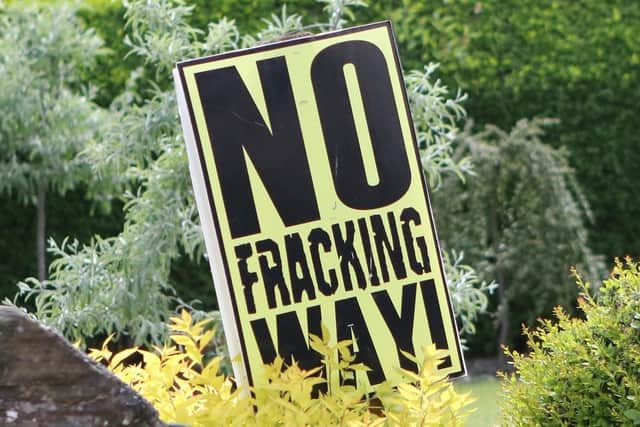What is fracking, is it safe and what is it used for? Here is everything you need to know about hydraulic fracturing
Business secretary Jacob Rees-Mogg lifted the legal restrictions on shale gas drilling in England used for fracking, also known as hydraulic fracturing or hydrofracking, on Thursday, September 22.
He received backlash from Tory backbenchers over the decision and responded by accusing opponents of the move of being ‘luddites’.
Advertisement
Hide AdAdvertisement
Hide AdThe process of fracking has been met with controversy for years, particularly in the north.


What is fracking and what is it used for?
The process is a well stimulation technique which consists of the fracturing of rocks by a pressurised liquid.
It involves the high-pressure insertion of ‘fracking fluid’, mainly water which consists of sand or other solid material immersed with the help of thickening agents, into a drilled out hole used to explore and recover natural resources, including oil, gas or water.
This creates cracks in the deep-rock formations for natural gas, petrol and brine to flow more freely. When the hydraulic pressure is extricated from the hole, small grains of hydraulic fracturing solid materials (either sand or aluminium oxide) keep the fractures open.
Advertisement
Hide AdAdvertisement
Hide AdIt first began as an experiment in 1947 and had its first commercial successful application in 1950.
Is fracking safe?
It may be a simple question, however, the answer is a lot more complex.
The controversy around fracking is predominantly driven by opponents who believe that the process has negative environmental impacts, including groundwater and surface water contamination, noise and air pollution and the triggering of earthquakes as well as resulting hazards to public health and the environment.
Research was conducted to look into the adverse health effects in populations living near hydraulic fracturing sites. Results of the investigation show that there has been chemical, physical and psychosocial hazards as a result of fracking for example in pregnancy and birth, migraine headaches, chronic nasal mucosa infection, extreme fatigue, asthma aggravations and psychological stress.
Advertisement
Hide AdAdvertisement
Hide AdHowever, those who are pro-fracking believe that the economic benefits of more accessible hydrocarbons, along with replacing coal with natural gas, burning more cleanly and as such emits less carbon dioxide, are too important.
The government trusts that the current regulation and planning policy is vital for oil and gas development, while reassuring that it is continuously monitored regularly to ensure effective regulations.
According to the Royal Academy of Engineering and Royal Society, the health, safety and environmental risks attached to fracking as a means to extract shale gas can be managed effectively in the UK as long as ‘operational best practices are implemented and enforced through regulation’.
According to the Health and Safety Executive (HSE), the main hazard is ‘uncontrolled release of hydrocarbon gas due to a failure of the well structure which may then reach a source of ignition leading to a fire or explosion’.
Advertisement
Hide AdAdvertisement
Hide AdThe regulator said: “A well designed and constructed well will reduce the risks of a release of fluids to as low as is reasonably practicable. The actual level of risk varies, depending on how quickly and easily any release can be controlled, and on geological conditions.
“Where there is a loss of well integrity, there is also the possibility of fracking fluids or produced water being released to the surrounding rock strata or at surface, which may have environmental consequences depending on the location of water aquifers.”
Comment Guidelines
National World encourages reader discussion on our stories. User feedback, insights and back-and-forth exchanges add a rich layer of context to reporting. Please review our Community Guidelines before commenting.
